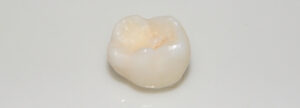 As parents, watching your child grow and develop is one of the most exciting parts of parenthood. One major milestone that many eagerly anticipate (and sometimes dread) is the emergence of baby teeth! Understanding the natural progression of baby teeth can help you stay prepared and ensure your child’s oral health is on the right track. At the Pediatric Dental Center in Northern Kentucky, we’re here to guide you through every step of your child’s dental journey.
As parents, watching your child grow and develop is one of the most exciting parts of parenthood. One major milestone that many eagerly anticipate (and sometimes dread) is the emergence of baby teeth! Understanding the natural progression of baby teeth can help you stay prepared and ensure your child’s oral health is on the right track. At the Pediatric Dental Center in Northern Kentucky, we’re here to guide you through every step of your child’s dental journey.
When Do Baby Teeth Start to Appear?
Baby teeth, also known as primary teeth, typically begin to emerge between 6 to 10 months of age. However, every child is different—some may get their first tooth earlier, while others might be late bloomers. The two bottom front teeth called the lower central incisors, are usually the first to appear, followed by the upper front teeth (upper central incisors).
By the time your child is 3 years old, they should have a full set of 20 baby teeth.
The Stages of Baby Teeth Development
- Teething (6-10 months)
The teething process can be uncomfortable for your baby, leading to fussiness, drooling, and a desire to chew on everything. To ease discomfort, offer teething rings or gently massage their gums. While teething can be challenging, it’s a normal part of their growth. - Primary Teeth (6 months – 3 years)
As baby teeth emerge, they pave the way for permanent teeth by guiding the development of the jaw and facial muscles. It’s crucial to start brushing your baby’s teeth as soon as the first one appears. Use a soft-bristled toothbrush and a tiny amount of fluoride toothpaste (about the size of a grain of rice) to clean their teeth twice a day. - Losing Baby Teeth (Ages 6-12)
Around the age of 6, your child’s baby teeth will start to become loose and fall out to make room for their permanent teeth. This process typically begins with the front teeth (incisors) and continues until the molars are replaced by around age 12. During this period, you may notice gaps in their smile, which is completely normal!
Why Are Baby Teeth Important?
Though baby teeth are temporary, they play an important role in your child’s overall health and development. Baby teeth help your child:
- Chew food properly
- Speak clearly
- Maintain space for permanent teeth
By taking care of baby teeth early on, you’re setting the foundation for a healthy adult smile.
Caring for Baby Teeth
At the Pediatric Dental Center, we encourage parents to bring their children in for their first dental check-up around their first birthday. Early visits allow us to monitor your child’s dental development and offer tips on caring for their teeth at home. Here are a few tips for maintaining healthy baby teeth:
- Brush twice a day with fluoride toothpaste.
- Avoid sugary drinks and snacks, which can lead to cavities.
- Floss daily once two teeth are touching.
- Schedule regular dental check-ups every six months to catch potential issues early.
What About Tooth Decay in Baby Teeth?
Tooth decay can affect even the youngest patients. Known as early childhood caries or baby bottle tooth decay, this condition is often caused by frequent exposure to sugary drinks, such as juice or milk, especially when consumed from a bottle or sippy cup over extended periods.
To prevent decay, limit sugary beverages, and never put your child to bed with a bottle. Regular dental visits also help catch cavities early before they become a more serious issue.
Trust the Pediatric Dental Center Team for Your Child’s Smile
At the Pediatric Dental Center in Northern Kentucky, we understand that every stage of your child’s dental development is important. From teething to the loss of their first tooth, we’re here to ensure your child has a healthy, happy smile. If you have any questions or concerns about your child’s teeth, don’t hesitate to contact us. We’re committed to providing gentle, expert care for every little smile!
Schedule your child’s appointment today, and let’s keep their teeth shining bright!
Contact the Pediatric Dental Center for expert care!
